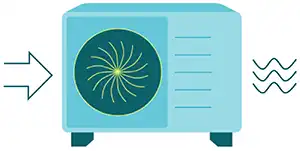Composting for Beginners
Composting is a natural way to significantly reduce waste that would otherwise go to a landfill and contributes towards a healthier planet.
Whether you’re an experienced gardener or just starting on your gardening journey, learning how to compost is a valuable skill that can benefit both your garden and the environment.
In our guide, we will walk you through the basics of composting, providing practical tips to help you get started.
What is Composting?
The natural decomposition process of organic matter, such as kitchen scraps, garden waste and some paper, makes the rich soil known as compost. This process is carried out by microorganisms which break down the food scraps, ultimately making compost.
Why should you compost?
With a large array of benefits, compost is good for both the environment and your garden. The most important reason is kitchen waste reduction. Organic waste in landfills creates methane, a greenhouse gas. Scientists say that creating compost with this same organic waste produces 34 – 84% less methane than if it was left in a landfill. One of the reasons for this is due to the oxygen component of the composting process.
Compost also improves structure, fertility and moisture level in the soil, leading to healthier crops and plants. It is also rich in a variety of nutrients such as nitrogen, phosphorus, potassium, calcium and magnesium. These nutrients are all an essential part of plant growth. Making homemade compost also reduces the need for store-bought fertilisers, ultimately saving you money as well as reducing packaging.
What is Peat Free Compost?
Peat-free compost is an alternative to traditional compost that doesn’t contain peat moss, which is harvested from natural peat bogs. Peat-free composts are made from a variety of organic materials such as composted bark, wood fibres, food waste, and other sustainable sources. They are designed to provide nutrients and improve soil structure for plant growth while also being environmentally friendly, as they help to conserve peat bog ecosystems. Peat-free composts are popular among environmentally conscious gardeners seeking sustainable gardening practices.
How to Make Compost at Home
Choose your composting method: Composting can be done using various methods such as backyard bins, tumblers, and compost heaps. Select the method that works best for you and the space available in your home.
Gather materials: Next, you need to gather the materials that you will use to make your finished compost. Here, you will need a mix of green materials (such as food waste, weeds and fresh grass cuttings) and brown materials (dry fallen leaves and shredded paper.) Start by layering the greens and browns in your compost bin or pile. Aim for a ratio of roughly 2 parts brown to 1 part green by volume. Turn your compost regularly to ensure good aeration and decomposition.
Maintain Moisture and Air: Composting organisms need oxygen and moisture to thrive. Keep your compost pile moist, like a wrung-out sponge, and turn it regularly to aerate the materials and speed up decomposition.
Monitor: Pay attention to the temperature, smell, and moisture content of your compost. A properly balanced pile will heat up as it decomposes and should have an earthy smell. If your compost is too wet or smelly, add more browns to improve airflow and absorb excess moisture.
Harvest Your Finished Compost: Depending on the method and conditions, garden composting can take anywhere from a few weeks to several months. Once your compost is dark, crumbly, and rich-smelling, it’s ready to use. Simply sift out any large chunks and incorporate the compost into your garden soil or use it as mulch.
Troubleshooting Common Issues
- Smelly Compost:
This usually indicates anaerobic conditions caused by too much moisture or lack of airflow. Add more browns and turn the pile to improve aeration.
Read more about how to fix bad smelling compost.
- Pests and Rodents:
Avoid adding meat, dairy, and oily foods to your compost, as these can attract unwanted pests. Use a secure bin or cover your pile with wire mesh to deter animals.
Learn how to pest-proof your compost bin.
- Slow Decomposition:
If your compost is taking longer than expected to decompose, it may need more nitrogen (greens) or regular turning to speed up the process.
Composting is a simple yet rewarding practice that anyone can incorporate into their daily lives. By diverting organic waste from landfills and turning it into nutrient-rich soil, you not only improve the health of your garden but also contribute to a more sustainable future.
Explore how to look after wildlife in your garden. Or visit our Beyond The Grid content hub for more blogs on how to prepare your garden for different seasons.




